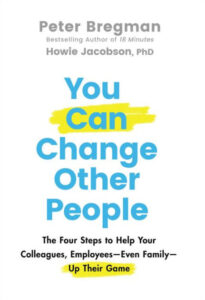Once you discover the benefits of whole food, plant-based nutrition...
...it's natural to want to yell it from the roof tops!
When we see permanent weight loss, we decrease or eliminate our meds, and we just feel 100% better each and every day, why wouldn't we want to share that great news when the people around us aren't doing the same?
Sharing our success stories with others is one thing, but actually inspiring them to make changes themselves can be challenging and frustrating, especially with our family members. If we're not careful in our approach, others might feel as though we're imposing our will on them, and they in turn, can become defensive.
I love this quote attributed to Dale Carnegie:
"A man convinced against his will is of the same opinion still."
In other words, he's not convinced at all; therefore, no long-lasting change is going to take place.
What's a better approach?
If you care about people around you who are eating poorly, not taking care of themselves, or not reaching their potential, Howie Jacobson has some good advice.
I listened in as Rip Esselstyn interviewed Howie about his book "You Can Change Other People." Howie laid out the following four steps, and I'll share a few of my notes with you.
First, shift from a critic to an ally.
The critic gives the message "I know more than you" instead of "I'm here to help you, if you want my help." Howie suggests we wait for silver platter opportunities (such as when someone complains). In a nutshell, we should begin by empathizing with that complaint, expressing some type of confidence in the person, and then ask for their permission to talk it through together. Here's the kicker, we have to be willing for them to say NO.
Second, find an energizing, positive outcome
Wait! Don't jump right into the problem. Ask the person what they'd like to happen, and what would be a good outcome for them? What would their life look like? Doing so allows us to better understand their motives. LISTEN and ask questions. Set goals around what their life would look like NOW, not somewhere off in the distant future.
Third, find a hidden opportunity
There are different types of opportunities (listen to the interview for Howie's explanation). Find the hidden opportunity, and come face to face with any "limiting beliefs" the person might have about themselves. A very common one is "I've been on diets before and I fail, I can't stick to it."
Fourth, what's the plan?
Howie states that the difference between insight and action is having a PLAN. So let's make it real. Structure a plan, and ask what they'd like to commit to. Here's an example: every time I have the urge to 'eat' my loneliness away, I'm now going to (call someone, read, walk, etc). Ask not only WHAT the plan will be, but WHEN it's going to begin.
Follow up by asking how confident they are that they'll follow through with this new plan. You want them to say 10, but if they say 6 or 7, ask what's getting in their way. The important thing is that they're making SOME steps toward the goal. Talk about follow-through, not success. Whatever the plan is, no matter how small, they must commit to it.
We need each other
Howie ends by saying the KEY POINT of the book is that we need each other. These four steps invite other people into relationships. The truth is that change is hard. But community is important, and a tool for people to work together.
Listen to Howie's interview HERE.
Learn more about Howie's book HERE.
Plans fall apart without proper advice;
but with the right guidance, they come together nicely.
(Proverbs 15:22, VOICE)
